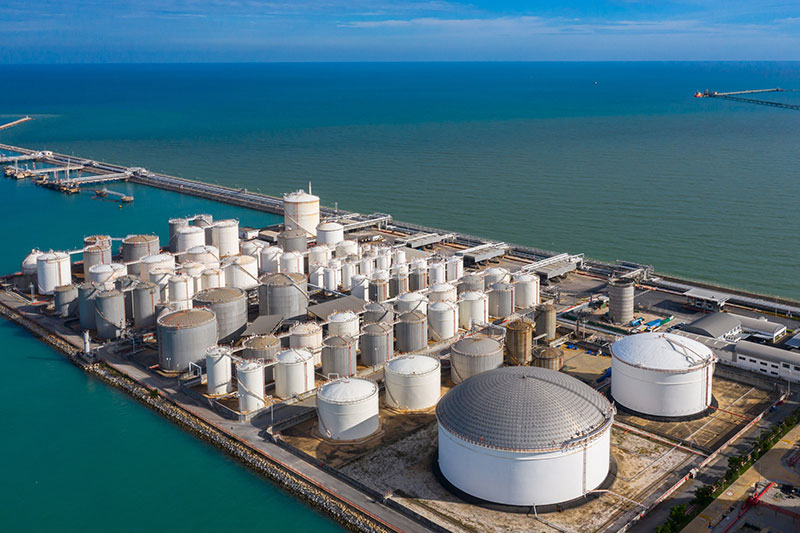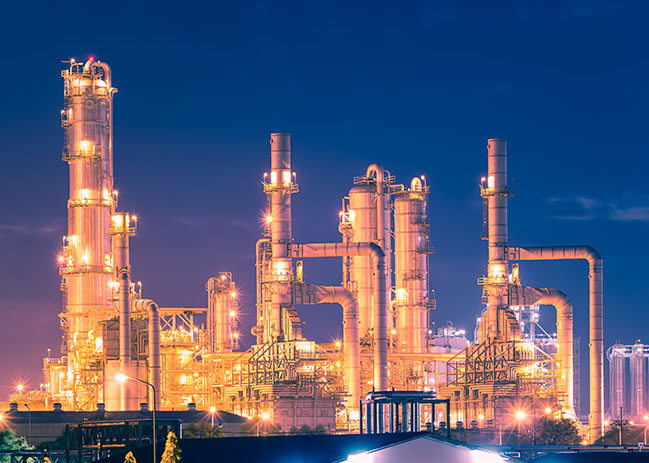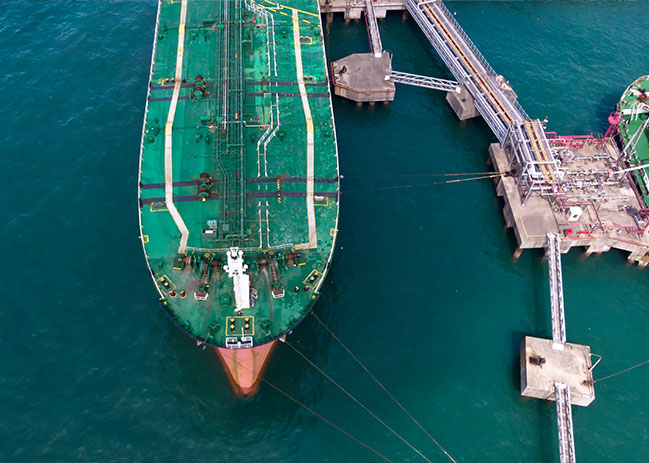
-
Diesel D2 Gasoil L-0.2-62 Gost 305-82
Standard diesel fuel (sometimes called diesel oil) comes in two grades: Diesel-1 (D1) and Diesel-2 (D2). Diesel or Diesel fuel in general is any fuel used in diesel engines. That’s why it’s also commonly called as AGO or Automotive Gas Oil. Diesel fuel is a type of fuel derived from the distillation of oil that is heavier than gasoline but lighter than engine oil and heavy oil.
D1 is similar to kerosene and is lighter than D2. While D2 is sold most of the time, D1 is sold during winter in very cold climates and not sold in hot weather countries. But D2 is easily available in most countries around the world. Despite rising awareness of environmental protection, D2 remains to be a key type of fuel for use in vehicles in many countries.
In particular, demand for D2 has risen significantly in Asia over the past years as a consequence of increasing number of cars. In view of the country sustained economic growth, D2 will continue to be undersupply in the China/India and market.
-
What is Diesel EN590 ?
EN590 describes the physical properties that all automotive diesel fuel must meet if it is to be sold in the European Union and Britain. Automotive diesel has national variants but the usual variants traded are EN590 and EN560 which are specified by ISO in Paris.
EN590 for diesel (in Europe) has been around for almost 20 years. However fuel, like most products, is subject to a process of continuous development – and that development includes responding to legislation. The EN590 standard has been amended many times since 1993.
The EN 590 had been introduced along with the European emission standards. With each of its revisions the EN 590 had been adapted to lower the sulphur content of diesel fuel. Since 2007 this is called ultra low sulphur diesel as the former function of sulphur as a lubricant is absent (and needs to be replaced by additives).
The quality of European diesel fuels is specified by the EN 590 standard. While these specifications not are mandatory, they are observed by all fuel suppliers in Europe. Automobile diesel EN 590 is intended for application in diesel engines. Diesel motor fuel quality meets the requirements of European Standard EN 590.
For operation in the conditions of a temperate climate following marks of fuel diesel automobile EN 590 are offered: Grade C – limiting filterability temperature -5 ° C; Grade D – limiting filterability temperature -10 ° C; Grade E – limiting filterability temperature – 15 ° C; Grade F – limiting filterability temperature -20 ° C.
The entire volume of produced diesel fuel quality meets the requirements for fuels for vehicles of Euro 4 and Euro 5. Low sulfur content in diesel EN 590 reduces emissions of sulfur oxides into the atmosphere, which is especially important for for inhabitants of big cities.
Some of the important revisions of the EN 590 standard have been:
EN 590:1993 – the first EU diesel fuel specification. It established a sulphur limit of 0.2% in on-road and non-road diesel fuels.
EN 590:1999 – this standard reflected the sulphur (350ppm) and cetane (51) specifications by Directive 98/70/EC.
EN 590:2004 – Sulphur limits of 50ppm (Euro 4) and 10ppm (Euro 5) as regulated by Directive 2003/17/EC. FAME (Fatty Acid Methyl Ester) content of 5% (B5)
EN 590:2009 – FAME content of 7% (B7) as regulated by Directive 2009/30/EC. This directive also adopts mandatory biofuel requirements for refiners and introduces a 10ppm sulphur limit in non-road fuels effective 2011.
-
What is ULTRA LOW SULPHUR DIESEL (ULSD) ?
Ultra Low Sulfur Diesel (ULSD) is diesel fuel with substantially lowered sulfur content. As of 2006, almost all of the petroleum-based diesel fuel available in Europe and North America is of a ULSD type.
There is not a single standard set of specifications and as the government mandated standard becomes progressively more strict so does the definition. The move to lower sulfur content is expected to allow the application of newer emissions control technologies that should substantially lower emissions of particulate matter from diesel engines.
This change occurred first in the European Union and is now happening in North America. New emissions standards, dependent on the cleaner fuel, have been in effect for automobiles in the United States since model year 2007.
ULSD has a lower energy content due to the heavy processing required to remove large amounts of sulfur from oil, leading to lower fuel economy. Using it requires more costly oil.
-
Diesel Fuel Oil D6
D6 is also be known as Residual Fuel Oil and is of high-viscosity. This particular fuel oil requires preheating to 220 – 260 Degrees Fahrenheit. D6 is mostly used for generators.
D6 is a type of residual fuel, mainly used in power plants and larger ships. The fuel requires to be preheated before it can be used. It is not possible to use it in smaller engines or vessels/vehicles where it is not possible to pre-heat it. D6 is its name in the USA. In other parts of the world it has other names.
Residual means the material remaining after the more valuable cuts of crude oil have boiled off. The residue may contain various undesirable impurities including 2 percent water and one-half percent mineral soil. D6 fuel is also known as residual fuel oil (RFO), by the Navy specification of Bunker C, or by the Pacific Specification of PS-400
Recent changes in fuel quality regulation now require further refining of the D6 in order to remove the sulfur, which leads to a higher cost. Despite this recent change, D6 is still less useful because of its viscosity as well as that it needs to be pre-heated before it can be used and contains high amounts of pollutants, such as sulfur. Since it requires pre-heating, it cannot be used in small ships or boats or cars. However large ships and power plants can use the residual fuel oil.
The price of D6 diesel traditionally rises during colder months as demand for heating oil rises, which is refined in much the same way.In many parts of the United States and throughout the United Kingdom and Australia, d6 diesel may be priced higher than petrol.
-
D6 Diesel Standards and AND Classification
CCAI and CII are two indexes which describe the ignition quality of residual fuel oil, and CCAI is especially often calculated for marine fuels.
Despite this marine fuels are still quoted on the international bunker markets with their maximum viscosity (which is set by the ISO 8217 standard – see below) due to the fact that marine engines are designed to use different viscosities of fuel.
The unit of viscosity used is the Centistoke and the d6 fuel most frequently quoted are listed below in order of cost, the least expensive first-
* IFO 380 – Intermediate d6 fuel oil with a maximum viscosity of 380 Centistokes
* IFO 180 – Intermediate d6 fuel oil with a maximum viscosity of 180 Centistokes
* LS 380– Low-sulphur (<1.5%) intermediate d6 fuel oil with a maximum viscosity of 380 Centistokes
* LS 180 – Low-sulphur (<1.5%) intermediate d6 fuel oil with a maximum viscosity of 180 Centistokes
* MDO – Marine diesel oil.
* MGO – Marine gasoil.
IDSM Group: Your Trusted Diesel EN590 10ppm and D6 Fuel Supplier
Operating heavy machinery, vehicles, or power plants? You need a steady supply of high-quality D6 and D2 EN590 10ppm fuel. As one of the leading suppliers, IDSM Group has provided diesel solutions to clients for over 15 years. Let us simplify your fuel procurement with customized delivery and competitive pricing.
The Critical Role of D6 and D2 Fuels in Power Generation
D6, also known as residual fuel oil, is a vital energy source for large marine vessels, diesel locomotives, and power plants. D2, also known as automotive diesel or EN590 10ppm, is a cleaner-burning diesel fuel used in trucks, buses, and cars.
While D6 contains higher sulfur content, making it suitable for electricity generation, D2 has lower emissions and is ideal for vehicle use. Both play indispensable roles in powering the transportation and energy sectors globally.
As a reliable D6 and D2 EN590 10ppm fuel supplier, IDSM Group understands the unique requirements of each application. Our extensive experience in oil trading enables us to provide a steady supply of high-grade D6 and D2 at competitive rates.
Why Work With IDSM Group?
Stringent Quality Control
We follow rigorous testing procedures to ensure the D2 and D6 fuel delivered to your facility is free of contaminants. This gives you the assurance of smooth engine performance and minimal downtime. Our quality control team works closely with refineries to maintain consistency.
Flexible Delivery Schedules
To avoid any disruption, we coordinate prompt fuel deliveries based on your consumption rate and storage capacity. You can easily request additional supplies or emergency top-ups of D6 or D2.
Customized Fuel Management
From daily fuel updates to bespoke order tracking, we offer customized solutions to simplify D2 and D6 fuel procurement. Our expertise in residual fuel trading provides cost benefits that are passed down to clients.
Adherence to Industry Best Practices
As a reliable D2 EN590 10ppm and D6 oil supplier, we follow stringent safety protocols during fuel transportation and delivery. Our fleet maintenance adheres to all DOT regulations to prevent accidents.
Rely on IDSM Group for your D6 and D2 fuel needs. Get in touch with us to experience the difference.
FAQs on Working With a D6 Fuel Supplier
How do you source D6 fuel?
We have established long-term partnerships with refineries across North and South America. This provides access to a steady inventory of high-grade D6 fuel.
What are your delivery timelines for D2 and D6?
For regular customers, we dispatch D6 fuel deliveries within 24-48 hours. In case of urgent requirements, emergency supplies can be arranged in 8-12 hours.
Do you offer technical support?
Yes, our team can advise on specifications for D6 or D2 EN590 10ppm and recommend additives as needed.
What quality standards do you follow for D2?
Our D2 automotive diesel meets the EN590 10ppm standard used across Europe. This ensures optimal performance.
What are your payment terms?
We offer flexible payment options including prepayment, credit, and fuel cards. Contact our finance team to discuss the best mode for your facility.
Can I get a quote for the D6 and D2 fuel supply?
Certainly, send us your requirements and location. We will provide a customized quote for D6 and D2 EN590 10ppm with guaranteed pricing.




